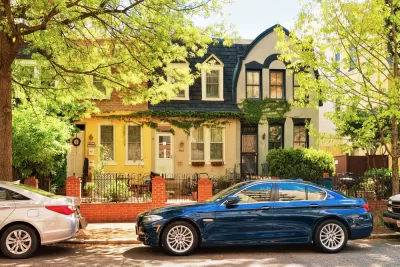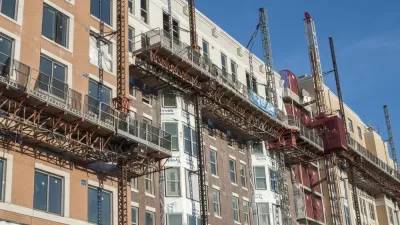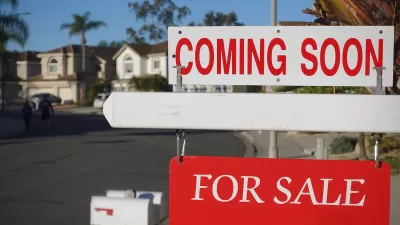New research by Jenny Schuetz shows that already-expensive neighborhoods in D.C., zoned for low-density single-family homes, are not doing their part in adding new supply to meet rising demand.

Jenny Schuetz shares new research that finds that where housing prices are increasing fastest in D.C., zoning has prevented any new housing from being added.
According to Schuetz's premise for the research, the facts on the ground don't live up to the promises of politicians, like D.C. Mayor Muriel Bowser, who has promised to build new homes in "every ward and every neighborhood" to prevent displacement in lower-income and minority communities.
A fundamental principle of economics is that when the price of goods or services increases, producers will increase supply. Therefore, when the price of housing in certain cities or neighborhoods increases, developers should build more homes. And indeed, District neighborhoods that saw higher growth in housing values did see more new housing construction—but only where restrictive zoning didn’t impede growth.
To illustrate the point, Schuetz shares graphs an also digs into specific census tracts. The larger conclusion Schuetz builds from these findings is that restrictive zoning exacerbates affordability by limiting new construction and incentivizing upgrades and upsizing, which leads in turn to higher costs.
FULL STORY: Restrictive zoning is impeding DC’s goal to build more housing

Alabama: Trump Terminates Settlements for Black Communities Harmed By Raw Sewage
Trump deemed the landmark civil rights agreement “illegal DEI and environmental justice policy.”

Study: Maui’s Plan to Convert Vacation Rentals to Long-Term Housing Could Cause Nearly $1 Billion Economic Loss
The plan would reduce visitor accommodation by 25% resulting in 1,900 jobs lost.

Planetizen Federal Action Tracker
A weekly monitor of how Trump’s orders and actions are impacting planners and planning in America.

Wind Energy on the Rise Despite Federal Policy Reversal
The Trump administration is revoking federal support for renewable energy, but demand for new projects continues unabated.

Passengers Flock to Caltrain After Electrification
The new electric trains are running faster and more reliably, leading to strong ridership growth on the Bay Area rail system.

Texas Churches Rally Behind ‘Yes in God’s Back Yard’ Legislation
Religious leaders want the state to reduce zoning regulations to streamline leasing church-owned land to housing developers.
Urban Design for Planners 1: Software Tools
This six-course series explores essential urban design concepts using open source software and equips planners with the tools they need to participate fully in the urban design process.
Planning for Universal Design
Learn the tools for implementing Universal Design in planning regulations.
Caltrans
Smith Gee Studio
Institute for Housing and Urban Development Studies (IHS)
City of Grandview
Harvard GSD Executive Education
Toledo-Lucas County Plan Commissions
Salt Lake City
NYU Wagner Graduate School of Public Service




























